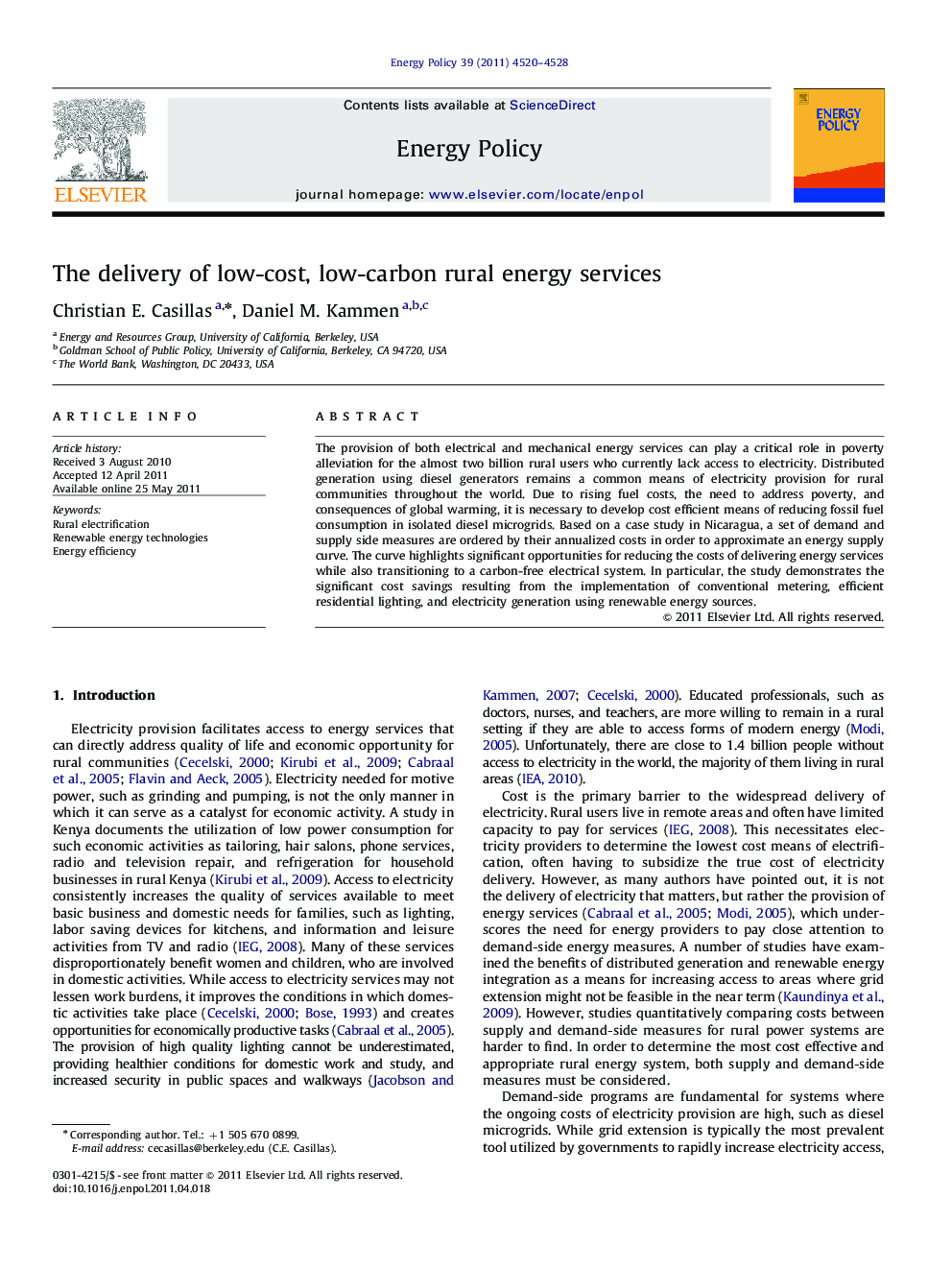| Article ID | Journal | Published Year | Pages | File Type |
|---|---|---|---|---|
| 995824 | Energy Policy | 2011 | 9 Pages |
The provision of both electrical and mechanical energy services can play a critical role in poverty alleviation for the almost two billion rural users who currently lack access to electricity. Distributed generation using diesel generators remains a common means of electricity provision for rural communities throughout the world. Due to rising fuel costs, the need to address poverty, and consequences of global warming, it is necessary to develop cost efficient means of reducing fossil fuel consumption in isolated diesel microgrids. Based on a case study in Nicaragua, a set of demand and supply side measures are ordered by their annualized costs in order to approximate an energy supply curve. The curve highlights significant opportunities for reducing the costs of delivering energy services while also transitioning to a carbon-free electrical system. In particular, the study demonstrates the significant cost savings resulting from the implementation of conventional metering, efficient residential lighting, and electricity generation using renewable energy sources.
► We present a case study of conservation measures implemented in a diesel microgrid. ► An energy conservation and supply curve is constructed using additional measures. ► Energy efficiency and renewable energy result in cost savings and carbon abatement. ► We discuss weaknesses of energy supply and carbon abatement curve calculations
